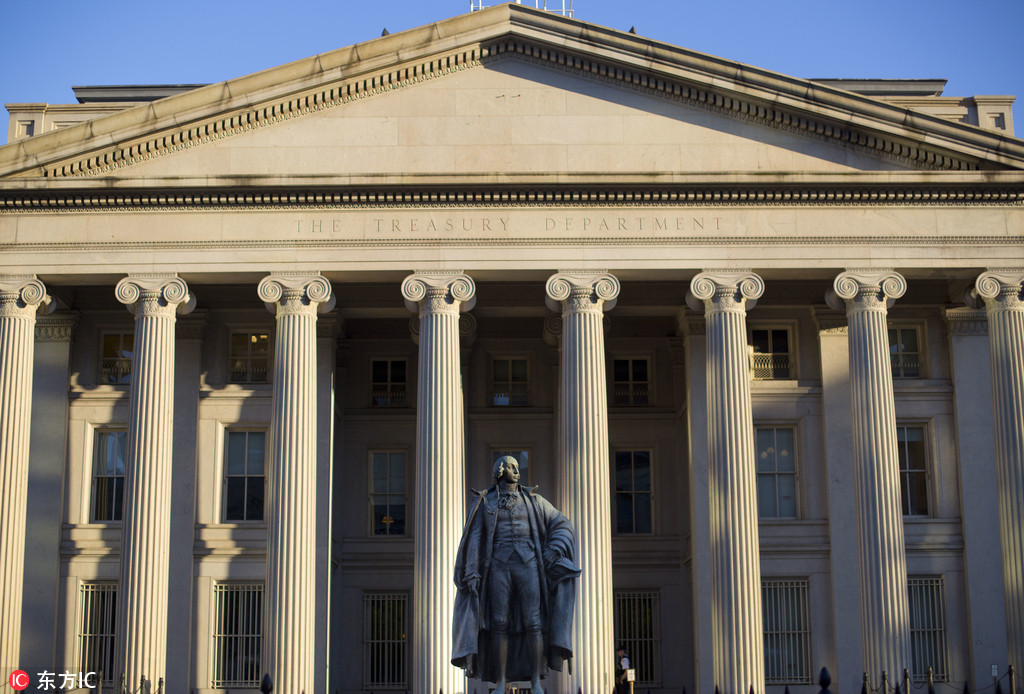US Treasury: China not manipulating yuan


The US Treasury, in a semiannual report to Congress on Wednesday, did not name China a currency manipulator and said more “market-based” reforms would lift confidence in the renminbi.
The Report on Macroeconomic and Foreign Exchange Policies of Major Trading Partners of the United States concluded that while the currency practices of six countries “require close attention”, no major US trading partner currently met the 2015 legislative criteria for enhanced analysis.
US Treasury Secretary Steven Mnuchin called for more transparency on the yuan, “and we will continue to monitor and review China’s currency practices, including through ongoing discussions with the People’s Bank of China”, he said.
The six major trading partners on the Treasury monitoring list for currency practices are China, Japan, Republic of Korea, India, Germany and Switzerland.
The Treasury said the recent depreciation of the renminbi will likely exacerbate China’s trade surplus with the US.
“China could pursue more market-based economic reforms that would bolster confidence in the renminbi,” the report said.
“If they’d found a way to label China, it would have hurt (market) sentiment further,” said Shahab Jalinoos, Credit Suisse Group AG’s global head of FX trading strategy. “But this being a yawn, if anything it should make markets more comfortable” with emerging market risk.
Yi Gang, PBOC governor, said last week that China will continue to let the market “play a decisive role” in the RMB exchange rate.
“We will not engage in competitive devaluation, and will not use the exchange rate as a tool to deal with trade frictions,” Yi said at a meeting of the International Monetary and Financial Committee.
Yi has said that “China will continue to push ahead with the market-based reforms of interest rate and exchange-rate regimes, and keep the RMB exchange rate broadly stable at an adaptive equilibrium level.”
Markus Rodlauer, deputy director of the Asia and Pacific Department at the International Monetary Fund (IMF), believed that the RMB exchange rate is “broadly in line” with China’s economic fundamentals.
“According to our framework, the exchange rate of the renminbi is not out of line. It is broadly in line with the fundamentals,” Rodlauer told Bloomberg last week.
On Tuesday, Treasury Department data showed that China’s holdings of US Treasuries fell for a third straight month— to $1.165 trillion in August from $1.171 trillion in July — their lowest total in more than a year.
In August, with the US-China trade dispute escalating, there was concern in the US that China, the largest non-US holder of Treasuries, would retaliate by paring its holdings.
But Jon Hill, interest rates strategist at BMO Capital Markets in New York, said there has been no evidence of that.
“This was probably just to support China’s currency and just to handle day-to-day flows,” Hill said of the Treasury sales.
Bloomberg, Xinhua and Reuters contributed to this story.



































